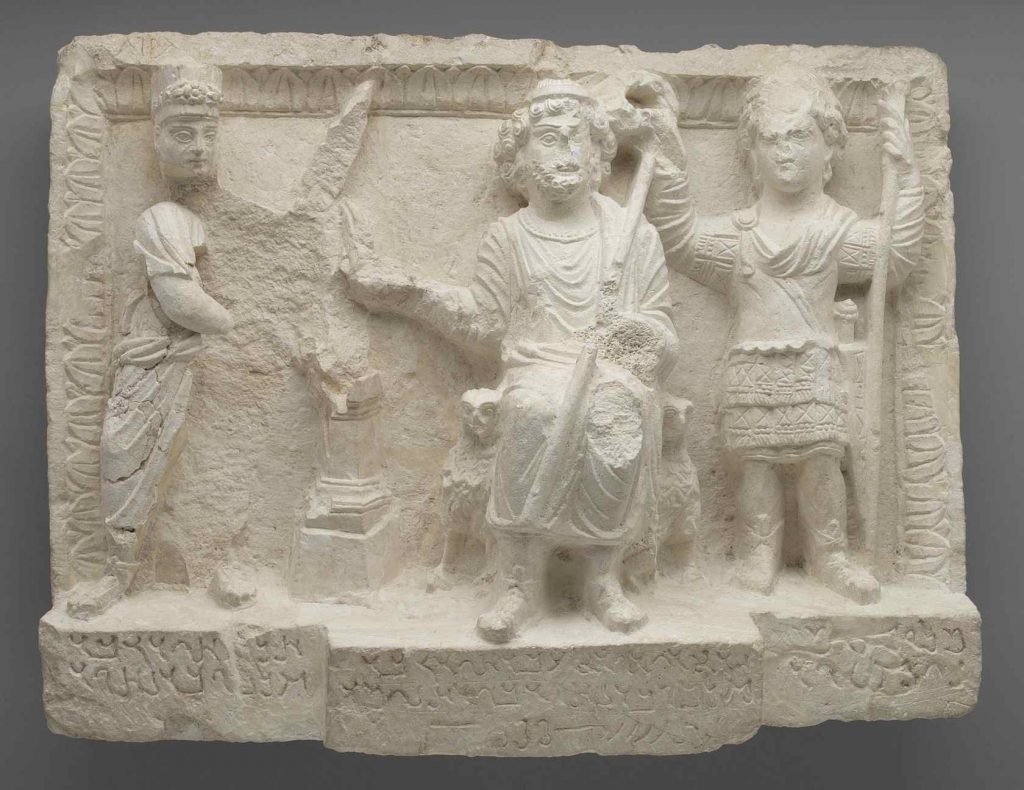WHO IS GOD OF FORTUNE?
Who is God of Fortune? We will look at that question in this the second part of our “Who is God” series.
In part one, I did a Facebook live video explaining that the “God” of Christianity is not the Aluahym (Elohim) of Israel. To underline this point, I gave 19 differences between “the Lord” (“God” of Christianity) and YAHUAH TSEVA’OTH (of Hosts), the Aluahym (Elohim) of Israel.
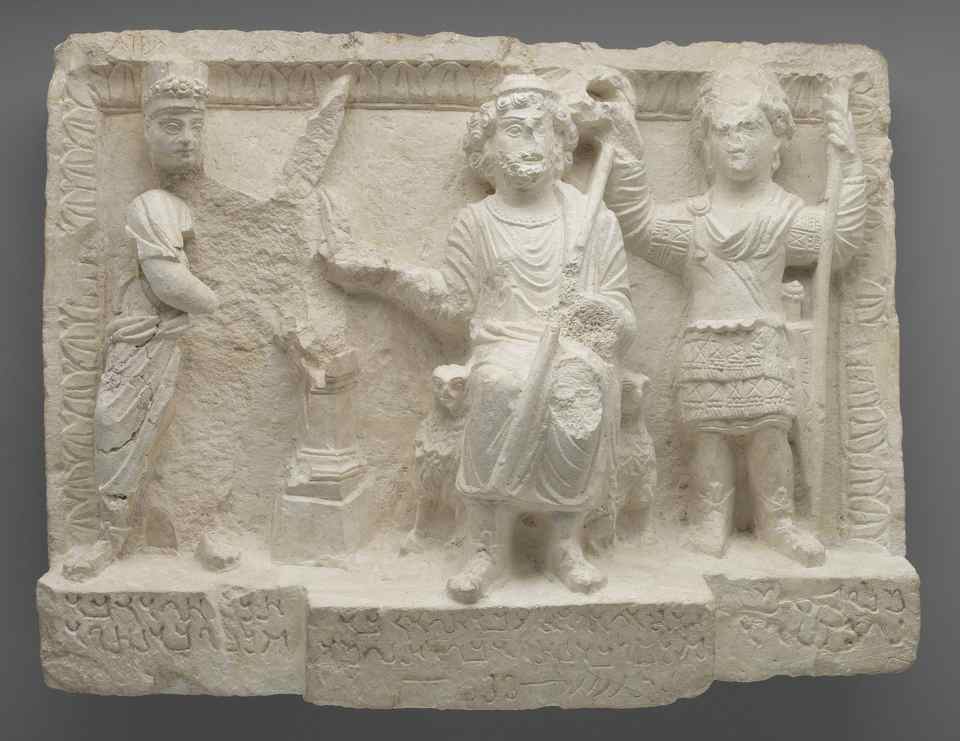
Today, we look at the God of Fortune (hidden in the Bible), to show that it is the “God” of Christianity. You will see why I don’t call the Father “God.”
In fact, I only use the false title for search engine purposes, so Christians searching can find our articles and come to the knowledge of the truth. In other words, we only use “God” so as to be all things to all people, so as to win some (1 Cor 9:19-23).
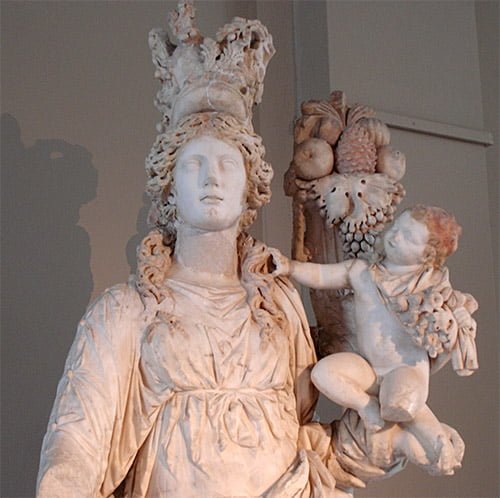
“God” Hidden in the Bible
God hidden in the Bible? But it is written 4473 times! Surely, it is not hidden!
Yes, it is, and we will show you today.
Gad, Gawd or Gud, was, and still is a popular elohiym among the nations. He goes by different names, but one thing that is common is that he is the elohiym of fortune (good luck).
There is a god of good luck and fortune all over the world. This includes (but not limited to) the Chinese, Egyptians, Indians, Japanese, the Celtics and most importantly for our purpose: Greece and Rome.
There is Nothing New Under the Sun
One thing you will understand is that these gods do not go away! There is nothing new under the sun (Ecc 1:9), so when the Gentiles got control of the Hebrew manuscripts, they sought to taint it with the names of their Gods. Therefore, almost 4,500 times the word Aluahym or Elohiym was translated into the name God.
Why is this? Why is it necessary to remove the original name and change it to another?
The God of Fortune
This is because the name God is the English version of Gad/Gawd/Gud, the god of fortune.
In the same spirit of translating the names of their mighty ones into the word and removing the Holy names, the name of the Father was also translated out almost 3000 times. YAHUAH was replaced with “the Lord,” which is the name of Ba’al.
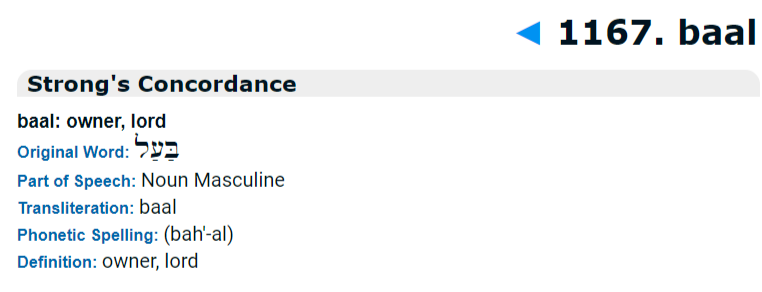
The name of the Messiah, Yahusha HaMashiach, was also translated into the pagan name Jesus Christ (Iesous) almost 600 times.
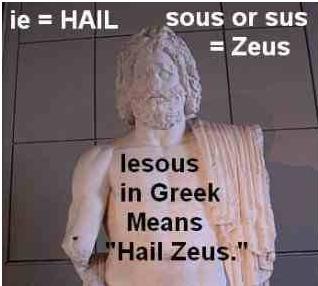
Do we think it is a coincidence that Dionysus was called the son of Zeus, and he was also called Christos (before the Messiah Yahusha walked the earth? These gentiles skillfully syncretize their gods so the world can ignorantly give them worship.
So we just want you to see how these people have deceived us, having us worship devils.
Getting back to the main point, “God” was not originally there! So hopefully you have begun to see why we say it is hidden. It will get clearer as we progress.
Where is God Hidden?
So where is God hidden in the Bible? Because the translators wanted us to believe that “God” was the Elohiym of the Bible, they had to hide the one place that revealed who “God” actually is. Confused? Continue.
In other words, they cannot be telling us that “God” is the Elohiym of Israel and reveal “God” as actually being the god of fortune, can they?
So therefore, the lying pen of the scribes had to conceal who “God” really is.
Jer 8:8 How do ye say, We are wise, and the law of the LORD is with us? Lo, certainly in vain made he it; the pen of the scribes is in vain.
The God of Christianity Revealed
So let us see the verse that they have concealed that show who the “God” of Christianity really is.
Isa 65:11 But ye are they that forsake YAHUAH, that forget my holy mountain, that prepare a table for that troop, and that furnish the drink offering unto that number.
Now on the surface that looks so harmless, doesn’t it? That is because this truth, like so many others, are hidden in translation by the pen of the scribes. Let’s take a look at three other translations.
(ERV) “But you people left the LORD, so you will be punished. You forgot about my holy mountain. You began to worship Luck. You held feasts for the false god, Fate.
(Darby) But ye who forsake Jehovah, who forget my holy mountain, who prepare a table for Gad, and fill up mixed wine unto Meni:
(GNB) “But it will be different for you that forsake me, who ignore Zion, my sacred hill, and worship Gad and Meni, the gods of luck and fate.
The three translations progressively tell a story. First, the KJV is skillfully trying to hide the name Gad (pronounced G-A-W-D) while at the same time hiding the fact that it was a false god being worshiped.
Indeed, the GNB tells us clearly that Gawd (Gad) was being worshiped in idolatry.
King James Only?
That is why it is erroneous to say King James only! One seeking truth must not limit YAHUAH and put him in a box called the KJV. Here at Just a Word, the KJV is our primary English translation, but we do not hesitate to go to other translations for clarity. Why?
Gentiles Sacrifice To Devils
We must understand that this is the time of the Gentiles. It is they who have given us the scriptures, having been given access to it because the children of Israel are in their final bondage. We must also remember something about the Gentiles!
1Co 10:20 But I say, that the things which the Gentiles sacrifice, they sacrifice to devils, and not to YAHUAH: and I would not that ye should have fellowship with devils.
The Gentiles never change. Don’t think that they are worshiping YAHUAH TSEVA’OTH, the Elohiym of Israel. If they were, there would not be at least 19 differences between the “God” of Christianity and YAHUAH TSEVA’OTH, the Aluahym of Israel!
They only mask the names and use the scripture to get the world to give honor to Satan, so he can exalt himself to be like the Most High!
Isa 14:12-14 How art thou fallen from heaven, O Lucifer, son of the morning! how art thou cut down to the ground, which didst weaken the nations!
For thou hast said in thine heart, I will ascend into heaven, I will exalt my throne above the stars of Elohiym: I will sit also upon the mount of the congregation, in the sides of the north: I will ascend above the heights of the clouds; I will be like the most High.
They are the children of the devil and the bidding of the devil they will do.
Joh_8:44 Ye are of your father the devil, and the lusts of your father ye will do. He was a murderer from the beginning, and abode not in the truth, because there is no truth in him. When he speaketh a lie, he speaketh of his own: for he is a liar, and the father of it
So that is why we encourage everyone to use a concordance. This gives us the different meanings of the root word in Hebrew (OT) and Greek (NT). It will give you the opportunity to see the myriads of translation biases and errors they have made. Rely on the Holy Spirit (Ruach HaKodesh), not the brainwashed teachings of religion, to lead you into all truth (John 16:13).
Because they sacrifice unto devils, they have deliberately set out to deceive us. As the Messiah said:
Luk 21:8 And he said, Take heed that ye be not deceived: for many shall come in my name, saying, I am Messiah; and the time draweth near: go ye not therefore after them.
This deceit is going to be so strong, it will threaten to deceive even the very elect (but it will not be possible). This is because it will be coming with great signs and wonders:
Mat_24:24 For there shall arise false Messiahs, and false prophets, and shall shew great signs and wonders; insomuch that, if it were possible, they shall deceive the very elect.
Be not deceived, do not let the might signs and wonders fool you. You know, those mighty ones done in the name of Gad (God) and in the name of Tammuz/Zeus/Yesu (Jesus).
Never forget, every religion reports great miracles and wonders. This is regardless of the fact that they worship idols.
Of course, this is a part of the strong delusion the Most High promised for those who do not want to believe his truth, but had pleasure in unrighteousness (1 Thess 2:1-12). But that is another story which we looked at here.
We haven’t even gone into the fact that each nation had their own elohiym, and that YAHUAH TSEVA’OTH is the Elohiym of Israel and none else.
Joel 2:27 And ye shall know that I am in the midst of Israel, and that I am YAHUAH your Elohiym, and none else: and my people (Israel) shall never be ashamed.
That may make a good topic for part 3 of “Who is God?”

The Pagan Origins of God
Finally, the following was taken from an article posted on iahushua.com.
A prophecy for the end-time is given in Isa. 65:11 wherein our Mighty One warns of the apostasy of His people, “But you are those who forsake Yahuah … who prepare a table for Gad, and who furnish a drink offering for Meni.” – Revised Authorised Version.
All commentators agree that Gad is a pagan deity, and so is Meni. Gad is usually interpreted as the well-known Syrian or Canaanite deity of “Good Luck” or “Fortune”, and Meni the deity of “Destiny”. This Gad is written in the Hebrew as GD, but the Massoretes afterward vowel – pointed it, adding an “a”, to give us “Gad”.
However, we find other references in Scripture to a similar deity, if not the same one, also spelt GD in the Hebrew text but this time vowel – pointed to read “Gawd” or “God”, in Jos. 11:17, 12:7, 13:5, where we find: “Baal-Gawd” or “Baal-God”, according to the vowel – pointed Massoretic Hebrew text. This Baal – Gawd or Baal – God was obviously a place named after their deity.159.
The astrologers identified Gad with Jupiter,159 the Sky-deity or the Sun-deity. See: Who is Yahweh?
Other sources of research also testify of “Gad” being the Sun-deity. Rev. Alexander Hislop wrote, “There is reason to believe that Gad refers to the Sun-god …
The name Gad … is applicable to Nimrod, whose general character was that of a Sun-god … Thus then, if Gad was the ‘Sun divinity’, Meni was very naturally regarded as ‘The Lord Moon.’ “160 Keil and Delitzsch, Commentaries on the Old Testament, comments on Isa. 65:11, “There can be no doubt, therefore, that Gad, the god of good fortune, … is Baal (Bel) as the god of good fortune. … this is the deified planet Jupiter … Gad is Jupiter … Mene is Dea Luna …
Rosenmuller very properly traces back the Scriptural rendering to this Egyptian view, according to which Gad is the sun-god, and Meni the lunar goddess as the power of fate.”161 Isa. 65:11 tells us that Yahuah’s people have forsaken Him and in the end-time are found to be serving Gad, the Sun-deity of “Good Luck”, and Meni, the Moon-deity of “Destiny”.
As pointed out above, this Gad (GD with and “a” vowel – pointing) is probably the same deity as we read of in the book of Joshua, GD with a vowel-pointing of “aw” or “o”, Massoretes cannot always be relied on, but we can rely on the Hebrew Scriptures before the vowel-pointing was done. It could well be that the GD of Isa. 65:11 is the same as the “Gawd” or “God” of the book of Joshua. But, let us not try to establish a fact on an assumption. Let us rather do some research on the word “God”.
The word God (or god), like the Greek Theos (or theos) is used in our versions as a title, a generic name, usually. It translates the Hebrew The Mighty One (or The Mighty One), El (or el), and Eloah. However, in quite a few places it is used as a name whenever it is used as a substitute for the Tetragrammaton, the Name of our Father, e.g. Matthew 4:4 etc.
If the word God is then used as a substitute for the Name, it must be accepted that the word God has become a name again. How and when did this title or name become adopted into our modern languages? Encyclopedia Britannica, 11th edition, says, “GOD – the common Teutonic word for a personal object of religious worship … applied to all those superhuman beings of the heathen mythologies.
The word ‘god’ on the conversion of the Teutonic races to Christianity was adopted as the name of the one Supreme Being ….” Webster’s Twentieth Century Dictionary, Unabridged, 1st edition, says, “The word is common to Teutonic tongues … It was applied to heathen deities and later, when the Teutonic peoples were converted to Christianity, the word was elevated to the Christian sense.” James Hastings, Encyclopaedia of Religion and Ethics, vol. 6, p. 302, reads, “After the conversion of the Teutons to Christianity the word came to be applied also to the Christian Deity …
Its etymology and its original meaning are obscure, and have been much debated.” J.G.R. Forlong, Encyclopedia of Religions, on “God”, says, “It is remarkable that philologists are unable to decide the origin of this familiar Teutonic word.”
Once again, we are strongly suspicious of the rulers of darkness or the Prince of Darkness, having succeeded, once again, in hiding yet another work of darkness. There is much confusion in the European languages between the words gud (good) and god. The Scandinavian languages, like the old Anglo-Saxon, called god gud and called gud (good) god. Calling good god and god gud is bad enough to confuse us.
Even worse is that the Old Nether lands languages regarded god as an idol and gud as the correct deity! Jacob Grimm recorded162 this for us, as well as Julius Pokorny and Jan de Vries.163 This inconsistency of spelling confuses us, as it must have confused the people in those early centuries who were still completely or partially ignorant of the True Mighty One and His Name.
Jacob Grimm asserts that this was done because of fear, “Such a fear may arise from two causes: a holy name must not be abused, or an unholy dreaded name, e.g., that of the devil, has to be softened down by modifying its form”, and then gives examples.162 Other modifying its form”, and then gives examples.162.
Other scholars have explained that the names of national deities were either hid or modified, in order to prevent their enemies from getting hold of these names -enemies who might use it as a magic word against them.
Another reason for this changing of spelling of idols’ names was the ritual of abrenuntiatio, i.e. a solemn renouncing of the names of major deities, whenever a pagan became converted to Christianity. One of the three major idols of the Teutonic tribes was called Saxnot. It is well documented how this name was renounced and later on came back in a disguised form, Saxneat. We even found that some idols’ name were spelt 17 different ways.
We found further evidence that “gott” or “god” was not only a title, but used as a name too, amongst the Teutonic tribes. Simrock discovered songs wherein “Gott” was used as a beiname for the deity Odin.164 In German, beiname means: surname (or epithet, or appellation). We further found “Goda” as a proper name of an idol.165.
Moreover, the same author relates how Wodan, “the name of the highest god” , also called Wotan and Odan, was also called Godan.166 The Teutonic masculine deities each had its female consort or counterpart. Thus we read that this deity’s female consort was frau Gode.167 It is commonly known that our Wednesday was named after Wodan or Wotan. In Westphalian we find this day being called Godenstag.168.
If the Teutonic pagans called all their idols by the generic name “gott” or “god”, shall we continue to call the One that we love by the same generic name/title/or name? Why do we not translate the title The Mighty One (or El or Eloah) with it proper meaning: Mighty One or Mighty?
Also, in those places where “God” has become a substitute name for “Yahuah “, shall we continue to invite the wrath of The Mighty One by doing this? He has commanded us that we should not destroy His Name (Deut. 12:3c and 4, KJV or RSV). he is sorely displeased with those who have forgotten His Name for Baal (Jer. 23:27), remembering that Baal really was the Sun-deity.
“Therefore My people shall know My Name,” Isa. 52:6. “Yahuah ‘s voice cries to the city – wisdom shall see Your Name,” Yahuah 6:9. “For The Mighty One will save Zion … and those who love His Name shall dwell in it,” Ps. 69:35-36.
Also read Isa. 56:6-7. If we love Him, we will love His Name. If we love His Name, we will not destroy it (Deut. 12:3c and 4), we will not forget it (Jer. 23:27), we will not substitute it with a title, a generic name, or a name, which had been used for a pagan deity (Exod. 23:13).
Also, and even more applicable to this present study, we will stop substituting His Name with Baal (Jer. 23:27 and Hos. 2:16) – that great Sun-deity, also known as Bel, who was the primary deity of Babylon – whether “Baal” applies to the name of the Sun-deity, or whether “Baal” became a title.
We are to stop substituting His Name with anything that pertains to a Sun-deity, or even only a title with an idolatrous origin, notwithstanding attempts to justify the “changed meaning of the word”.
There is not a single text in all Scripture that prohibits us from calling Him by His Name. They called upon His Name right back in Gen. 12:8 and 13:4, and as “Abraham” again in Gen. 21:33. Abraham called the place in Moria “Yahuah Yireh”, Gen. 22:14. Isaac called upon the Name Yahuah , Gen. 26:25. Jacob used the Name, Gen. 28:16. Leah used it, Gen. 29:33 and 35.
Moses proclaimed the Name of Yahuah, Deut. 32:3. David declared Yahuah ‘s name, Ps. 22:22, and so did our Messiah, Heb. 2:12, John 17:6 and 17:26. Finally, Yahushúa promised to do it again, John 17:26b, which is that which is now happening!
NB. This article used the name Yahúweh for the name of the most high. We have replaced it with what we believe is the true name, Yahuah.
Conclusion: Who is God of Fortune?
Who is god of fortune? We hope you have seen how Satan has deceived the whole world. Mankind has widely accepted the name “God.”
Indeed, most Christians don’t even care about the name of the Father. All they care about is their “god,” or “the Lord.”
We have been grossly deceived, but what do we expect from a deception that the Messiah said would fool the elect if it was possible? As prophecied by Daniel, only the wise will understand (Daniel 12:10).
